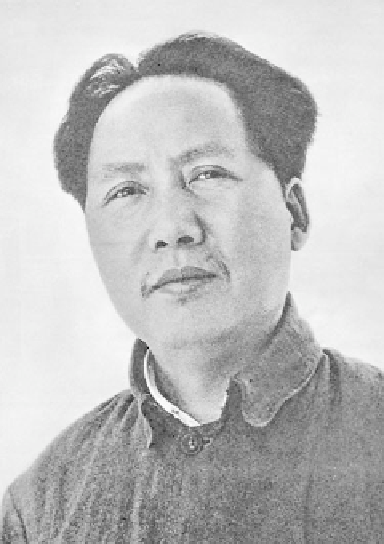Geography Reference
In-Depth Information
THE CHINESE COMMUNISTS IN THE COUNTRYSIDE
After Chiang's coup against them, the Chinese Communists were
down but not out. Many of them went into hiding in the cities where
they continued, at the Comintern's insistence, to foment classic prole-
tariat uprisings in the major cities. All the urban uprisings failed. Typi-
cally, they lasted for three days and were then suppressed by massive
numbers of KMT forces who were sent to the cities. By 1930 enthusiasm
among Chinese Communists for urban uprisings was waning.
A minority of Chinese Communists, led by Mao Zedong, had mean-
while retreated to the countryside, beyond the immediate reach of
Chiang's city-based forces. Mao returned to his native province of
Hunan, and in 1927 he led an unsuccessful peasant uprising, but he
was not discouraged. In August of that year several thousand KMT
troops defected to the Chinese Communists, among them Zhu De,
who eventually became the commander of the Red Army, and Zhou
Enlai, who later served as China's premier and was, after Mao, the
second most powerful leader in China.
Mao Zedong, leader of the Chinese communists. (The Illustrated London News
Picture Library)

